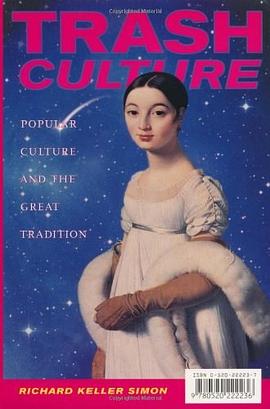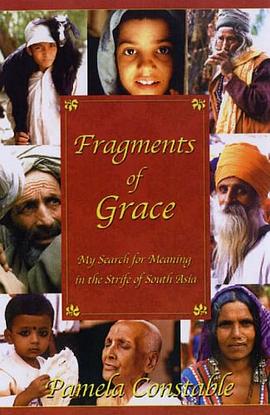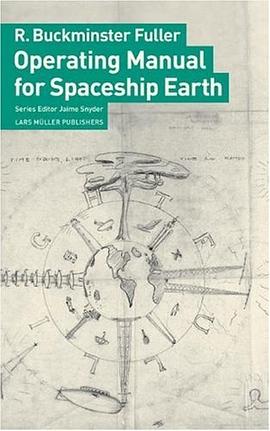

具体描述
Are there "natural laws" that govern the ways in which humans behave and organize themselves, just as there are physical laws that govern the motions of atoms and planets? Unlikely as it may seem, such laws now seem to be emerging from attempts to bring the tools and concepts of physics into the social sciences. These new discoveries are part of an old tradition. In the seventeenth century the philosopher Thomas Hobbes, dismayed by the impending civil war in England, decided that he would work out what kind of government was needed for a stable society. His solution sparked a new way of thinking about human behavior in looking for the "scientific" rules of society. Adam Smith, Immanuel Kant, Auguste Comte, and John Stuart Mill pursued this idea from different political perspectives. But these philosophers lacked the tools that modern physics can now bring to bear on the matter. Philip Ball shows how, by using these tools, we can understand many aspects of mass human behavior. Once we recognize that we do not make most of our decisions in isolation but are affected by what others decide, we can start to discern a surprising and perhaps even disturbing predictability in our laws, institutions, and customs. Lively and compelling, "Critical Mass "is the first book to bring these new ideas together and to show how they fit within the broader historical context of a rational search for better ways to live. Philip Ball majored in chemistry at Oxford University and received a Ph.D. in physics from the University of Bristol. He is now a writer and consulting editor for "Nature." He is the author of "Life's Matrix": " A Biography of Water"; "Bright Earth": " Art and the Invention of Color," which was nominated for a National Book Critics Circle Award; and "The Devil's Doctor." He lives in London, England, with his wife. Winner of the Aventis Prize "Critical Mass" asks the question, Why is society the way it is? How does it emerge from a morass of individual interactions? Are there laws of nature that guide human affairs? Is anything inevitable about the ways humans behave and organize themselves, or do we have complete freedom in creating our societies? In short, just how, in human affairs, does one thing lead to another? In searching for answers, science writer Philip Ball argues that we can enlist help from a seemingly unlikely source: physics. The first person to think this way was the seventeenth-century English philosopher Thomas Hobbes. His approach, described in "Leviathan," was based not on utopian wishful thinking, but rather on Galileo's mechanics; it was an attempt to construct a moral and political theory from scientific first principles. Although his solution--absolute monarchy--is unappealing today, Hobbes sparked a new way of thinking about human behavior in looking for the "scientific" rules of society. Adam Smith, Immanuel Kant, Auguste Comte, and John Stuart Mill pursued this same idea from different political perspectives. Today the purpose of applying concepts from physics to the social, political, and economic sciences is no longer to prescribe how society ought to be; instead, it is to understand the way it is, and how it evolves. In "Critical Mass," Ball looks at what this "physics of society" has to say about how people move in open or enclosed spaces; how they make decisions and cast votes, form allegiances, join groups, establish companies and communities. He examines the behavior of financial markets and reveals the hidden structure in networks of social and business contacts, and he explores the politics of conflict and cooperation from a scientific point of view. If physics can help us explain and understand human interaction and social behavior, can it also be used to anticipate and thereby avoid problems? Can physics be harnessed to improve societies, to guide us toward better decisions, and to make a safer and fairer world? Or is that merely another dream destined for the graveyard of utopias past? "A wide-ranging and dazzlingly informed book about the science of interactions. I can promise you'll be amazed."--Bill Bryson, chair of the 2005 Aventis General Prize Judging Panel "Philip Ball makes physics sexy again in "Critical"" ""Mass.""--Elissa Schappel, "Vanity Fair" "A prolific and accomplished science journalist . . . "Critical Mass" is] lively and wonderfully informative."--George Scialabba, "The ""Boston"" Globe""" "Fascinating . . . impressively clear and breathtaking in scope . . . substantial, impeccably researched . . . persuasive. For anyone who would like to learn about the intellectual ferment at the surprising junction of physics and social science, "Critical Mass" is the place to start."--Stephen Strogatz, "Nature""" ""Critical Mass" is an intellectual roller-coaster."--"The Economist" "A highly provocative work of popular science."--"Kirkus Reviews "(starred review) "In this wide-ranging investigation of pioneering attempts to explain social behavior by applying formulas borrowed from physics, Ball explains how maverick social theorists are now using discoveries about molecular motion and crystal formation to predict the behavior of various human groups, including crowds of soccer fans and clusters of pedestrians. Ball acknowledges that past 'political arithmeticians' have often dehumanized their subjects by adopting mechanistic assumptions about individual psychology and have sometimes legitimated totalitarian rulers by giving them a putatively scientific charter. But Ball's numerous detailed examples of the new social physics show how statistical models from physics can yield highly reliable predictions for large-group outcomes without abridging the unpredictable freedom of individual choice. These same examples teach that a consistent physics of society yields not an ideological straitjacket stipulating how people "should "act but rather a detailed portrait of how people "do "act. Because the new social physics can help managers and p
作者简介
英国著名的科学与科普作家。在牛津大学主修化学专业,在布里斯托尔大学获得物理学博士学位。已出版十部科学与科普书籍,并在世界许多著名的科学杂志上发表文章和评论。目前在著名杂志《科学》任特邀科学编辑,并经常通过媒体和在高等学府举办各种讲座。
目录信息
读后感
我是因为汪丁丁的推荐而买了这本书。 果然不出所料,根据汪老师的风格,读完这本书的感受和对此的预期基本一致。 精力旺盛的物理学家孜孜不倦地建立并修改一个又一个无聊的模型。 正如维特根斯坦而言,这些人便是典型的“游戏规则的旁观者”。 我就知道贝克尔的模型会被引用到...
评分书中多次提到了华人的名字,科学家、社会学家等。也提到了一些中国的事例。占全球1/5人口的华人在未来的一百年内或许真的会成为类似犹太人族群,当然还有个明确公认的政治实体国家政府。 本书前边的大半部分和自然科学关系更密切些,后半部分和社会科学关系更密切些。这些都暗...
评分书中多次提到了华人的名字,科学家、社会学家等。也提到了一些中国的事例。占全球1/5人口的华人在未来的一百年内或许真的会成为类似犹太人族群,当然还有个明确公认的政治实体国家政府。 本书前边的大半部分和自然科学关系更密切些,后半部分和社会科学关系更密切些。这些都暗...
评分 评分用户评价
《Critical Mass》这本书给我带来的最大惊喜,莫过于它在内容上的那种“意料之外,情理之中”。我原本以为它会是一个相当偏学术的书籍,可能会充斥着晦涩难懂的术语和复杂的公式,但事实证明,我的担忧是多余的。作者以一种极其平易近人的语言,将那些原本可能枯燥的理论,阐述得生动有趣,充满活力。我甚至多次在阅读时忍俊不禁,因为作者巧妙地运用了一些幽默的笔触,让我在轻松愉悦的氛围中,吸收了大量的知识。更重要的是,这本书并非只是停留于理论层面,它更注重将理论与实践相结合,通过大量的真实案例分析,来验证和阐释书中的观点。这些案例的选择非常有代表性,涵盖了不同的领域和不同的情境,这让我更加深刻地理解了“Critical Mass”这个概念的普适性和重要性。它让我意识到,原来在生活的方方面面,都存在着这种“临界点”,而一旦突破了这个点,事物的变化就会呈现出截然不同的轨迹。这本书的结构也设计得非常巧妙,每个章节的过渡都自然流畅,仿佛浑然一体,让我一口气读下去,欲罢不能。
评分对于《Critical Mass》这本书,我最深刻的感受便是它所带来的那种“思维冲击”。我常常认为,一本优秀的书籍,不仅仅是传递信息,更应该能够激发读者的思考,甚至在一定程度上改变读者的思维方式。而《Critical Mass》无疑做到了这一点。作者提出的很多观点,都让我感到耳目一新,甚至颠覆了我以往的一些固有认知。我发现,很多我曾经习以为常的现象,在作者的解读下,都呈现出了全新的视角和深刻的内涵。我尤其喜欢作者在探讨问题时所展现出的那种批判性思维,他不会轻易接受现有的解释,而是深入挖掘问题的本质,去寻找最根本的原因。这种对真理的不懈追求,让我对作者产生了深深的敬意。我常常会在阅读时,不断地与书中的观点进行对比和反思,思考自己是否也曾经犯过类似的思维误区,或者是否存在着被忽略的关键因素。这本书就像一位智慧的长者,耐心地引导着我,一步步地走向更深层次的理解。
评分《Critical Mass》这本书,在某种程度上,可以被视为我近期阅读中最具启迪性的一本。我从它身上获得了一种看待世界的新视角,一种分析问题的全新工具。我尤其赞赏作者在书中对复杂事物进行分解和归纳的能力,他能够将那些庞杂的、看似无关的元素,清晰地梳理成一条条逻辑链,最终指向一个核心的观点。这让我意识到,很多我们日常生活中遇到的“难题”,其实都可以通过系统性的分析来找到解决方案。书中的论证过程严谨而有力,每一处都经得起推敲,让我完全信服作者的结论。同时,作者在写作上也展现出了极高的技巧,他能够运用各种修辞手法,将原本可能枯燥的理论,变得生动形象,引人入胜。我多次在阅读时,被书中精辟的语句所打动,甚至会停下来,将它们摘抄下来,作为日后思考的借鉴。这本书不仅仅是提供信息,它更是在培养一种思维能力,一种独立思考、深度分析的能力。
评分阅读《Critical Mass》的过程,对我而言,是一次精神上的探险。我喜欢它一开始就营造出的那种引人入胜的氛围,仿佛在缓缓铺陈一个宏大的叙事。作者在开篇部分就巧妙地运用了一些引人深思的案例,这些案例并非是那种泛泛而谈的理论,而是充满了生活气息,或者是源自真实世界的事件,这让我立刻感到一种亲切感和代入感。随着阅读的深入,我发现作者的笔触非常细腻,对于细节的把握恰到好处,既不会显得冗余,又能够有效地支撑起整个论证过程。我尤其欣赏作者在梳理复杂概念时所展现出的清晰的思路和条理,他能够将那些看似抽象、难以理解的理论,用一种生动形象的方式呈现出来,让我能够轻松地跟随他的思路去理解和吸收。书中的每一个章节都像是一个独立的思考空间,但又彼此关联,层层递进,最终汇聚成一股强大的思想洪流,冲击着我的认知边界。我常常会在读完一段内容后停下来,反复咀嚼其中的含义,思考它与我自身经验和认知的联系。这本书让我感觉到,作者不仅仅是在传授知识,更是在引导读者进行一场深刻的自我对话,去审视自己对于某些问题的看法,去挑战那些习以为常的观念。
评分我发现,《Critical Mass》这本书,在某种程度上,为我提供了一种观察和理解世界的“全新滤镜”。我之前对很多现象的理解,可能还停留在比较表象的层面,而这本书则引导我深入到事物的本质,去探寻那些隐藏在表象之下的驱动力。作者在书中对“Critical Mass”这个概念的解读,充满了智慧和洞察力,他能够将那些看似复杂、抽象的理论,用一种清晰、易懂的方式呈现出来。我尤其欣赏作者在阐述观点时所展现出的那种严谨的逻辑和丰富的论据,每一句话都掷地有声,让我心服口服。这本书不仅仅是提供信息,它更是在培养一种思维模式,一种能够穿透现象、直达本质的思维模式。我常常会在阅读后,回过头来审视自己曾经的经历和认知,并从中发现了不少被我忽略的“临界点”,以及它们所带来的巨大影响。
评分《Critical Mass》这本书,让我对“积累”和“变革”这两个概念有了全新的认识。我之前一直认为,事物的变化是一个渐进的、线性的过程,但这本书却向我揭示了“临界点”的强大力量。作者通过大量的例子和深入的分析,让我看到了,当事物积累到一定程度时,就会发生质的飞跃,而这种飞跃往往是突如其来的,具有颠覆性的。这让我开始重新审视我生活中的很多方面,思考哪些方面可能已经达到了某种“临界点”,而即将发生改变。我尤其欣赏作者在阐述这些观点时所展现出的那种冷静而理性的态度,他不会夸大其词,也不会故弄玄虚,而是用事实说话,用逻辑服人。这本书不仅为我提供了一个理解世界的新模型,更让我对未来充满了探索的勇气和信心,因为它让我知道,只要我们坚持不懈地努力,总有一天会迎来那个属于我们的“Critical Mass”。
评分我必须承认,《Critical Mass》这本书带给我的体验,远超出了我最初的预期。我本来以为它会是一本相对“硬核”的书籍,或许会需要我花费很多精力去理解那些复杂的理论。然而,作者却以一种极其巧妙的方式,将那些深奥的概念,呈现在我眼前,让我能够轻松地理解,并深深地被吸引。我尤其喜欢作者在举例时所展现出的那种独到的眼光,他总能从浩瀚的现实世界中,选取那些最能说明问题的案例,并对其进行深入的剖析。这不仅让我的理解更加具象化,也让我看到了“Critical Mass”这个概念在现实生活中的广泛应用。这本书的语言风格也非常独特,既有严谨的学术性,又不失流畅的文学性,读起来让人感觉非常享受。我常常会在阅读过程中,被作者的洞察力所折服,他总是能够看到别人看不到的细节,并将其上升到理论的高度。
评分在我眼中,《Critical Mass》是一本真正能够“点亮”思维的书籍。我一直都在寻找能够引发深度思考、拓宽视野的作品,而这本书恰恰满足了我的所有期待。作者在书中构建了一个极其严谨的逻辑框架,并在这个框架内,对“Critical Mass”这个概念进行了多角度、深层次的解读。我尤其喜欢作者在探讨不同领域时,所展现出的那种跨学科的视野,他能够将经济学、社会学、心理学等多个领域的知识融会贯通,最终汇聚成一股强大的思想力量。这让我意识到,很多看似独立的现象,其实都可能受到“临界点”的影响,而一旦我们掌握了这种规律,就能更好地理解和应对各种变化。书中的语言风格也十分独特,既有学术论文的严谨,又不失散文的优美,读起来让人感到一种智识上的愉悦。
评分《Critical Mass》这本书,给我带来的最深刻的体验,便是它让我认识到了“量变引起质变”这个朴素道理背后所蕴含的巨大能量。我一直认为,事情的改变需要漫长的时间和巨大的努力,但这本书却让我看到了,当事物积累到一定“临界质量”时,一场翻天覆地的变化就会发生。作者在书中通过大量引人入胜的案例,生动地阐释了这一点,让我对“Critical Mass”这个概念有了更加深刻的理解。我尤其喜欢作者在分析这些案例时所展现出的那种细致入微的洞察力,他能够从每一个细节中挖掘出关键的信息,并将其上升到理论的高度。这让我意识到,很多我们忽略的细微之处,可能正是决定事物走向的关键。这本书不仅拓宽了我的认知边界,更让我对未来的发展充满了期待,因为它让我知道,只要我们朝着正确的方向努力,终有一天会达到那个令人振奋的“临界点”。
评分当我在书店琳琅满目的新书架上看到《Critical Mass》这本书时,就被它那沉稳而富有力量的书名所吸引。我向来对那些能引发深度思考的书籍情有独钟,而“Critical Mass”这个词本身就带着一种积累到临界点,即将爆发或发生巨大改变的意味,这让我对这本书的内在潜力充满了期待。我花了很长时间翻阅这本书的封面设计,它的字体选择、排版以及封面的整体色调都透露出一种严谨而又不失现代感的气质,让我隐隐觉得这本书的内容会是经过精心打磨,逻辑清晰,并且具有一定厚度的。在随后的几天里,我多次在脑海中回想这本书的名字,想象着它可能探讨的主题,是关于科学上的临界质量,还是社会学上的群体行为阈值,抑或是经济学上的某个转折点?这种悬念吊足了我的胃口,让我迫不及待地想将它带回家,开启一段未知的阅读旅程。我甚至在网上搜索了一些关于“Critical Mass”这个词在不同领域应用的案例,试图从中窥探这本书可能触及的广度和深度,这让我对作者的选题和切入点产生了浓厚的兴趣,究竟是什么样的“临界质量”被作者选中,又将以怎样的方式呈现在读者面前,这一切都笼罩着一层神秘的面纱,让我感到既兴奋又好奇。我设想,这本书或许会颠覆我以往对某个固定概念的认知,或者揭示隐藏在现象背后的深层规律,这种可能性本身就极具吸引力。
评分 评分 评分 评分 评分相关图书
本站所有内容均为互联网搜索引擎提供的公开搜索信息,本站不存储任何数据与内容,任何内容与数据均与本站无关,如有需要请联系相关搜索引擎包括但不限于百度,google,bing,sogou 等
© 2026 book.wenda123.org All Rights Reserved. 图书目录大全 版权所有




















